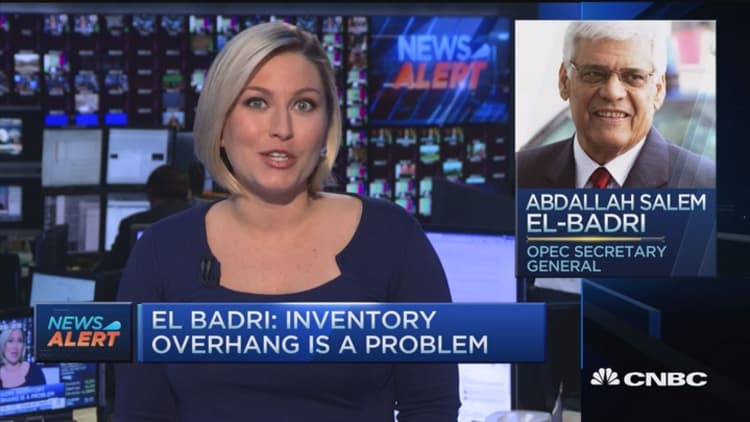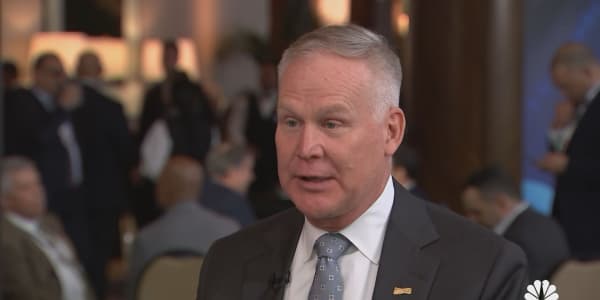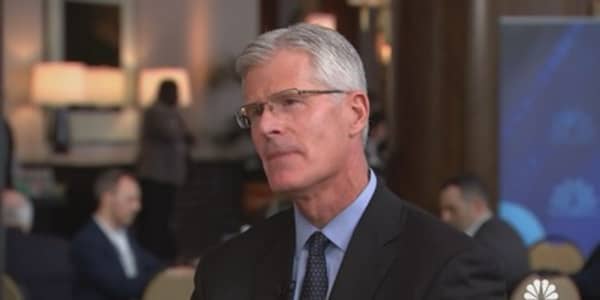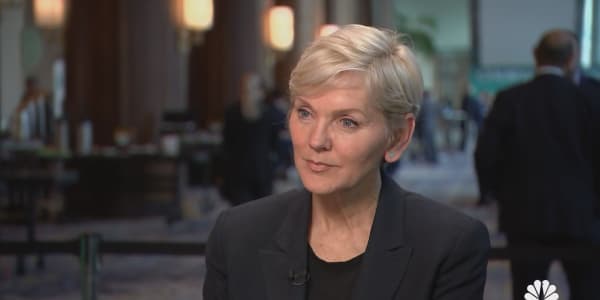
An OPEC production cut does not appear close at hand, but the cartel is seemingly eager to participate in an effort to bring up oil prices.
On Tuesday morning Saudi Arabia Oil Minister Ali al-Naimi will speak at the conference, and market watchers are waiting to hear his views on this important issue.
On Monday, OPEC Secretary General Abdalla Salem El-Badri told CNBC that oil producers are still "feeling the water" over a possible deal to freeze production, and it is "wait and see" as to whether it leads to any other type of deal. Non-OPEC Russia and Saudi Arabia agreed with Venezuela and Qatar to cut production if other producers join in.
El-Badri made the comment as he left a panel discussion he was participating in at the IHS CERAWeek energy conference in Houston. To the gathering he said, "Let's freeze production and, if successful, take other steps in the future." El-Badri said the proposed freeze should be evaluated after three to four months to see if it succeeds.
The market has speculated that if oil producers can agree on a freeze, a cut is not far behind. "It doesn't seem to be on the horizon yet," said Bhushan Bahree, IHS senior director and advisor on global oil markets.
El-Badri's comments did suggest the members of the Organization of the Petroleum Exporting Countries are willing to go along, but it is still not clear what position Iran will take. That country is busy trying to restore its market share and had committed to bringing back a million barrels of oil this year, adding to the 1.5 million to 2 million barrels currently oversupplying the market. Iran has supported the freeze idea but has not said it would curb its efforts to return oil to the market, now that sanctions against it are lifted.
The OPEC Secretary General said the cartel would next meet at its regularly scheduled meeting in June, in response to a question on whether it would hold a special meeting.
OPEC has held steadfast to its policy of letting the market set prices, even though its policy drove prices down sharply and some of its members called for action. In fact, the cartel had been accused of being powerless, or dead.
"We are not dead. We are alive, alive, alive," said El-Badri, during a news briefing. He said OPEC has been blamed for cutting production and now for not cutting production. "We're damned if you do, damned if you don't."
El-Badri during the panel discussion explained that if prices do rise, the industry will respond with more output. "Any increase (in price), the shale oil will come immediately and cover any reduction," he said, adding a balance needs to be found. "In the past, supply didn't come in when production was cut."
So far, talk of the production freeze deal has driven up prices, but some analysts are skeptical that without an actual cut, just leveling off production will not turn the tide of oversupply.
Neil Atikinson, head of the International Energy Agency's oil market division, said the four producers who proposed the freeze were not anticipated to increase production anyway, and lacking a cut the outlook does not change.
"It makes no difference to current market fundamentals," Atkinson said. He was also attending the IHS CERAWeek conference.
Russia has said it would like to have consultations on a preliminary deal completed by March 1, with other countries including Norway and Mexico. Tord Lien, Norway's minister of petroleum and energy told CNBC that his country speaks to other producing nations but would not comment on whether it was talking to Russia or its position on the freeze. Lien was part of an afternoon panel at CERAWeek on Monday.
El-Badri described the challenges facing OPEC with the growth of the U.S. shale industry, noting the U.S. cannot be brought into an accord like other producing nations with national oil companies.
The IEA said in a new report Monday that U.S. shale producers will take the biggest hit, with U.S. production expected to drop by 600,000 barrels of light tight oil this year because of weak crude prices. It sees another 200,000 barrels lost next year but then sees prices stabilizing.
The IEA report helped fuel a rally in West Texas Intermediate crude, which was also responding to falling rig counts. WTI futures for March expired Monday. The contract settled at $31.48 per barrel, up 6.2 percent.
John Kilduff, partner at Again Capital, said the freeze talk also has pushed up the price. "I think the market's giving them entire credit to have this freeze seemingly in place," said Kilduff.
"He stated a lot of the obvious," said Kilduff of El-Badri. "When it comes from him it carries more weight. They have a problem with the shale guys and he acknowledged that."







